

John LeMondes, 27 year veteran of the Army, checks on a sick sheep in the barn.
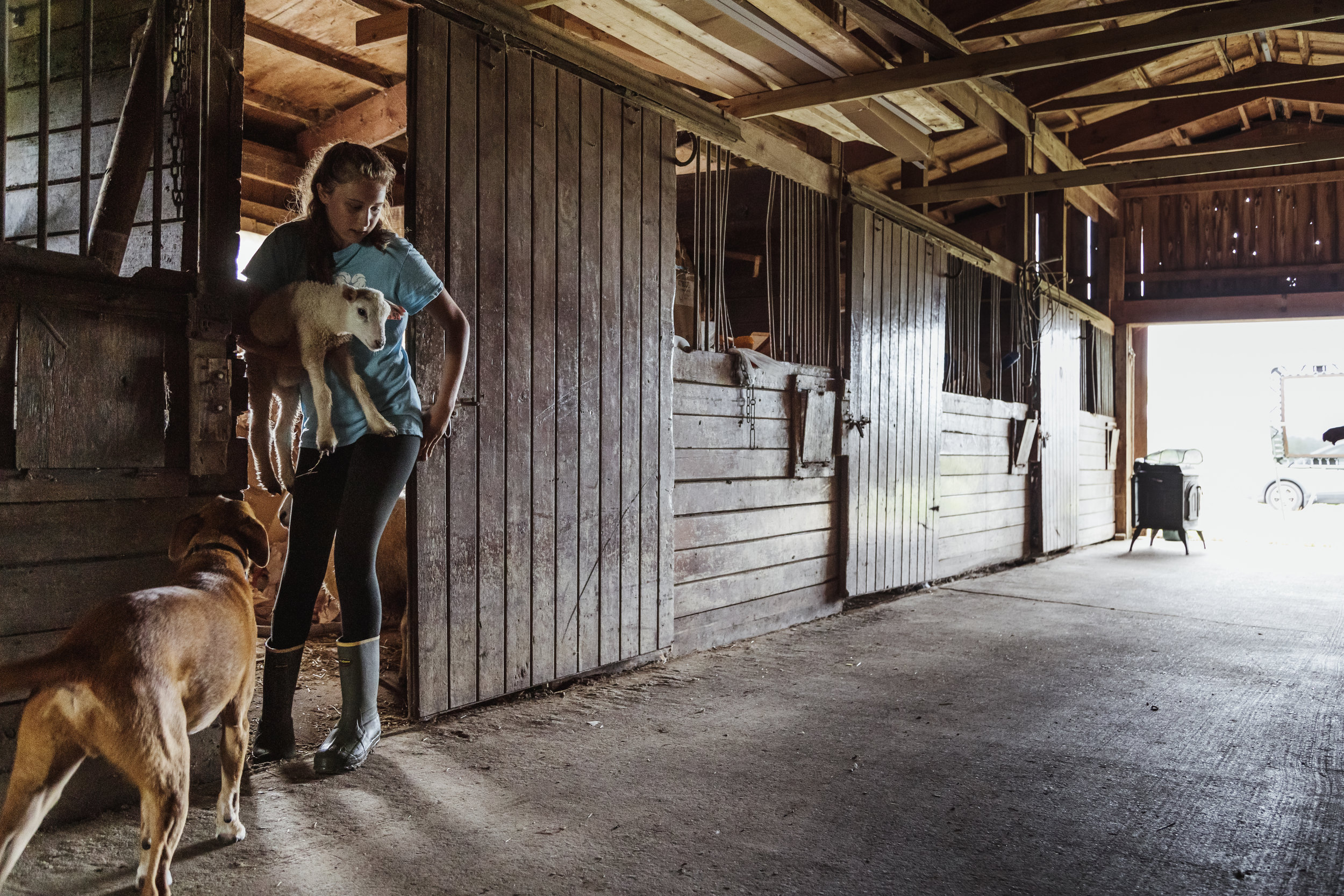

John’s daughter Olivia carries a lost baby back to it’s mama.
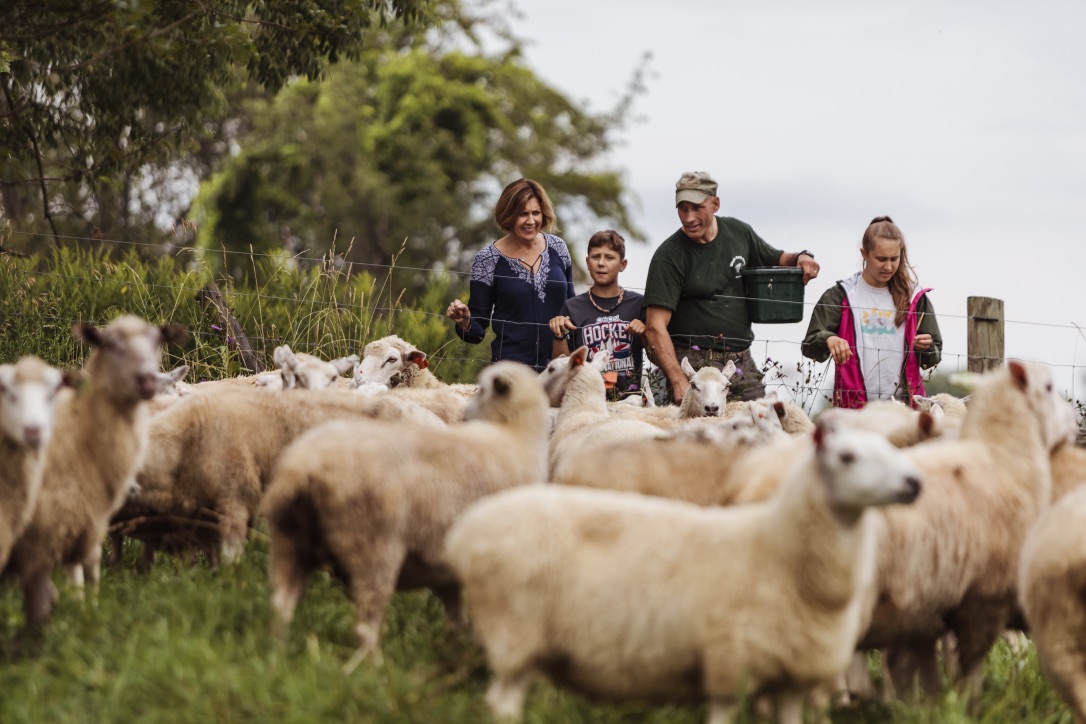

John, his wife Martha, and their two children Olivia and J.J. all contribute daily to make the farm work.


John’s sheep are free range and eat the native grasses of Syracuse, New York.
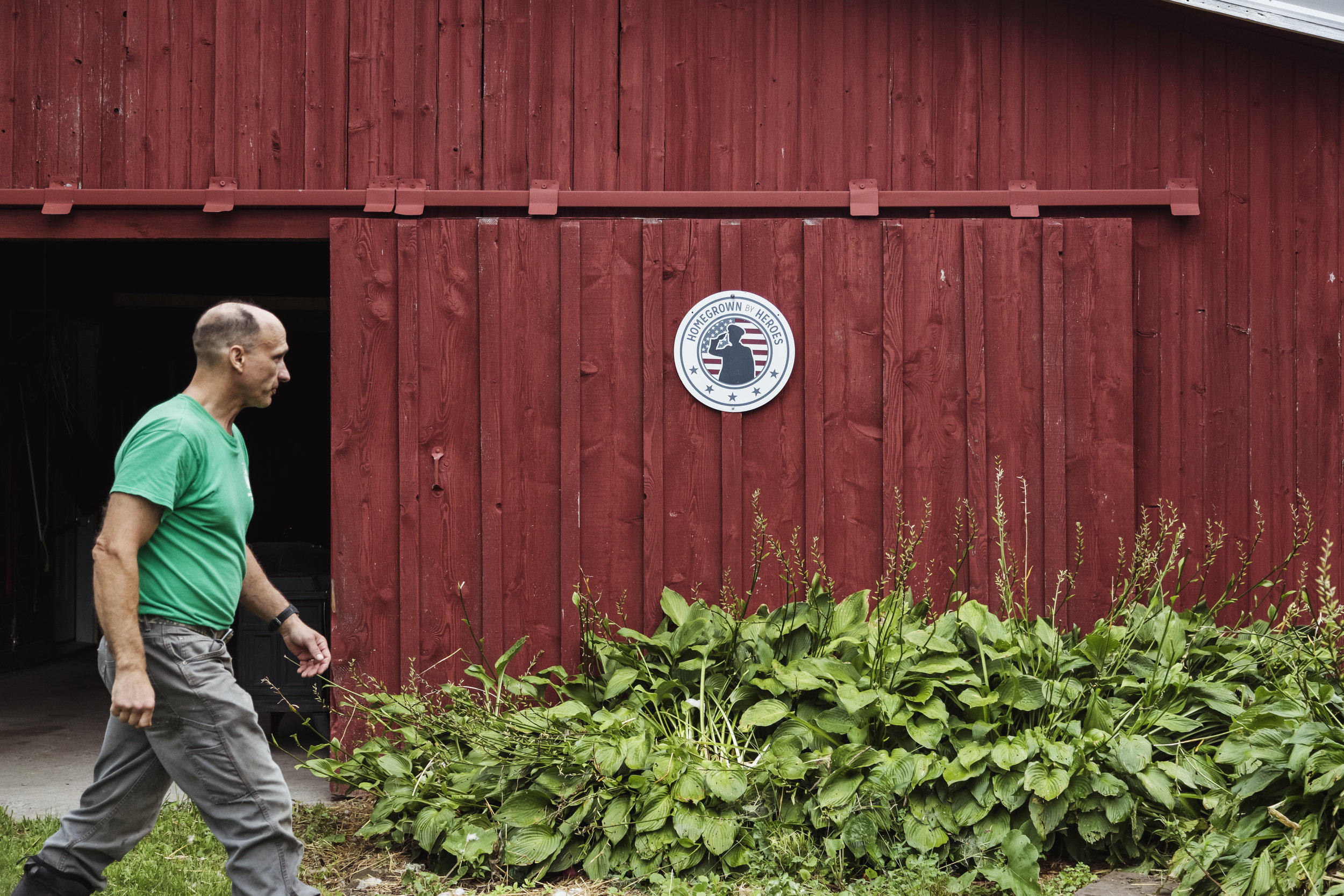

John works off-farm 9-5, raises two kids with his wife Martha, and runs his sheep farm operation on his nights and weekends
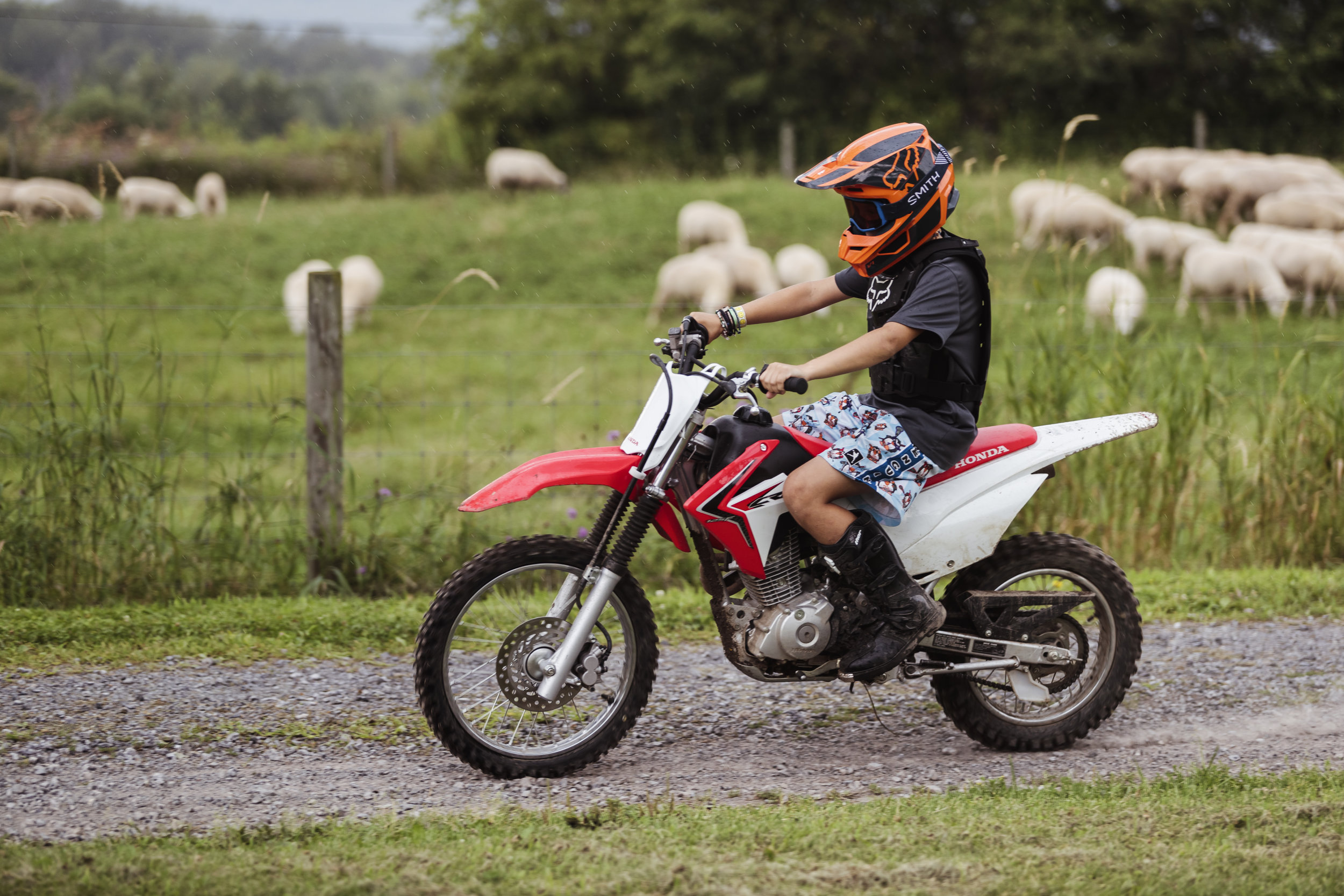

John is thankful for what their family’s farming lifestyle provides for himself, his wife, and his children. Here is his son J.J. ripping around the farm on his motorbike.
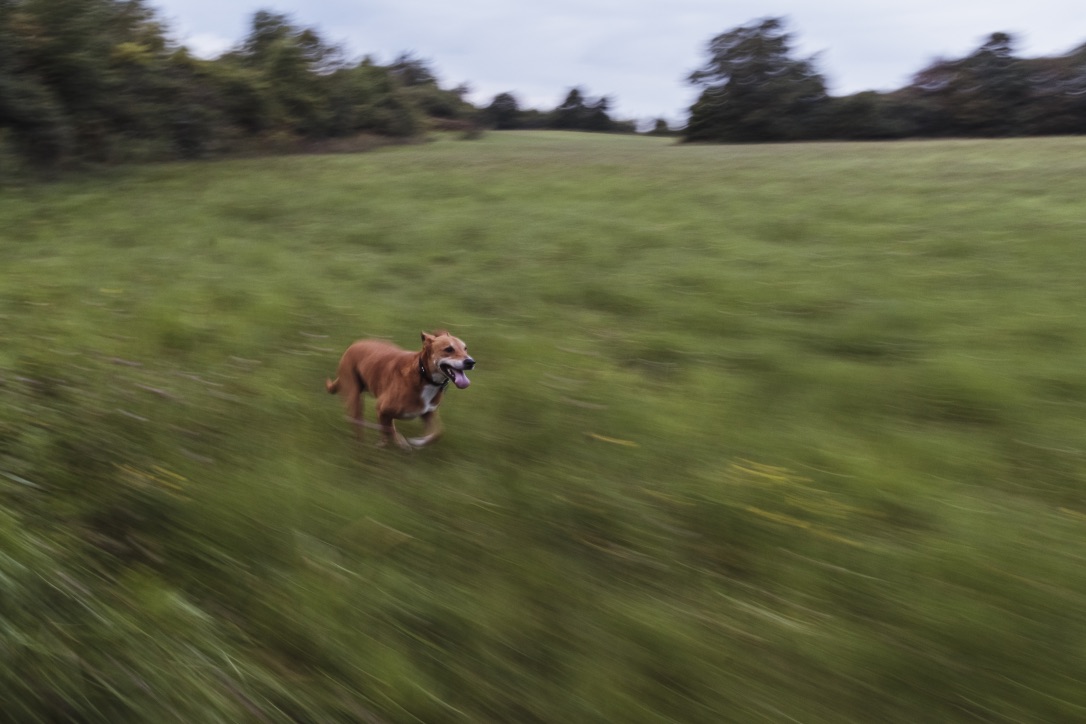

John’s favorite farm dog chases a buck through the fields.
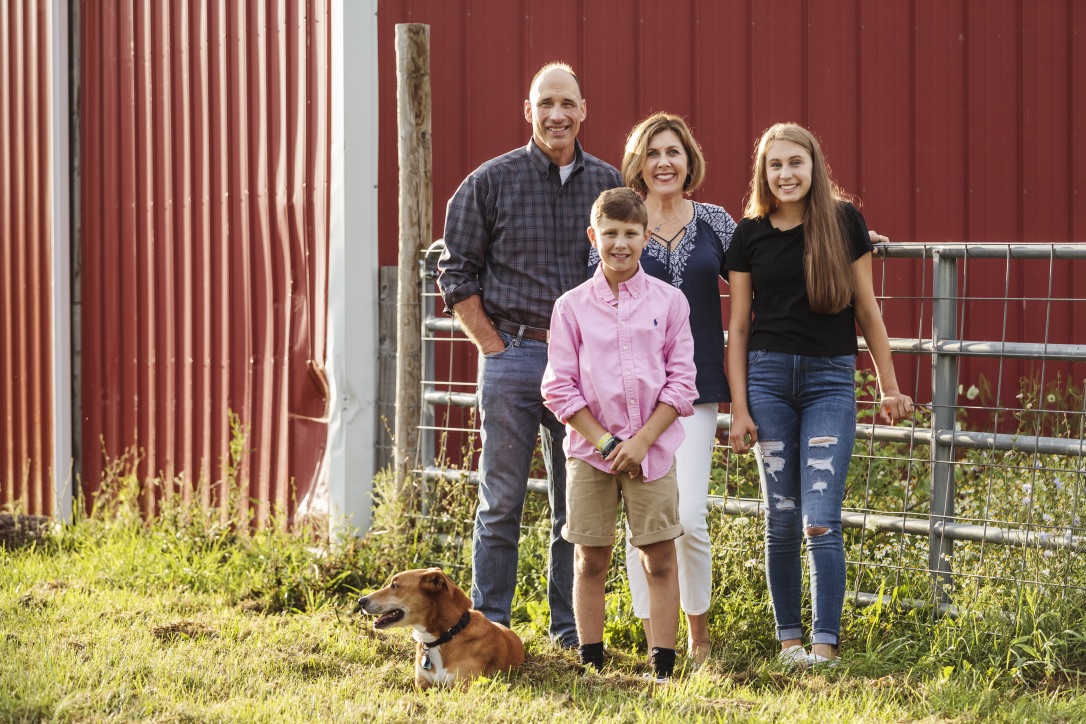

The LeMondes family on their sheep farm in Syracuse, NY.
We have a challenge to our national security that no one is talking about. How can America address a looming food security crisis? Veteran Farmers!? Maybe.
“You can’t make a 30 year farmer in 5 years. It seems obvious but when it comes to agriculture… it’s not,” said John LeMondes a 27 year veteran of the Army who now works two jobs: One is his 9-5 as a defense contractor and the other is a sheep farmer in Syracuse, NY.
“I came home from my other job and heard a sheep calling. It was in trouble. Five years ago, I wouldn’t have understood that. It took nearly 5 years to understand the types of calls that sheep and goats make,” said John reliving the moment. “Now I can tell the difference. I ran back and found the sheep with its head stuck in a fence and was able to save the sheep. “
What is our national security risk? After serving his country for nearly 3 decades in some very challenging places, John sees a threat much closer to home.
“If you look at agriculturally, we went from completely local production to local and regional to then national. And so that’s a huge threat to the entire country. For 100 years food has become industrialized and decreased the size of the small farms and increased the size of industrialized farms. Right now, the average sized farm is 410-415 acres. This number has been increasing for the last 100 years,” said John. “Even though we have all these challenges with agriculture we have to feed ourselves and our future generations.”
But we are losing small farmers, roughly 1M current famers are retiring from the farms.
“There are several forces behind this, our economy is changing. There are so many things against farmers. Farmers are struggling and they are telling their kids not to follow in their footsteps.”, said John ruefully.
“We are part of the American lamb industry,” said John talking about his own small family farm. “And we are also proud Americans. And so, as our own grassroots efforts to make our community better, we started a farm from scratch.”
John thinks we need more small farmers to diversify our food sources and be less susceptible to drought, disease, and natural disasters that can devastate large industrialized farms.
“If we are successful in pushing that production down to less national and more regional and local, that reduces our risk as a nation to our food base significantly, particularly our protein food base, and diversification in protein is another very important factor impacting our national security,” John points out.
Veterans to the rescue? Some say that veterans are the perfect people to lead America’s new farm movement and help replace 1M retiring farmers. Veterans know how to work hard and solve problems. They also could be motivated to, yet again, help our nation.
John has his concerns.
“Will veterans save our family farms? Not likely. Nor should they. I think there is a high potential for our veterans to be taken advantage of and I don’t want to see that,” John says with passion. “If you want veterans to do this? Equip them for success. Farming has a huge barrier to entry. First you need to own or control your own land. Then you need very expensive equipment. On an accounting ledger it is plants, equipment, and land. All of these take money. Every tractor cost the same as a house. Where do veterans get land and equipment?”
“You take a guy like me,“ John continues. “We took enormous risk on this operation. We were fortunate to have some money saved. Could a 25 year old do this? No. Not unless they had family money.
My wife and I both have off-farm jobs. We still have an exit strategy just in case this farm doesn’t work out.”
Can we find a way to properly support veterans to help protect America’s food security? What would that look like? The United States Department of Agriculture (USDA) and the Department of Defense (DoD) have taken steps to recruit and educate veterans to become farmers. John says this is not enough.
“Let’s invest in these capable men and women. If the USDA and the DOD set up some support for these new farmers then we can solve our current and future food crisis, “John says.
“We have a trained labor force, and this could be great for vets and great for the nation. But without support – we are just taking advantage of our veterans and that’s the last thing we want to do those who have served our nation.”
But aren’t we all more conscious about where our food comes from? Can’t local business support these veteran farmers? In 2019, isn’t there enough collective will to make this happen?
“Everyone talks about farm to table, but when it comes time for chefs, restaurants, and grocery stores to buy from local farmers… most don’t do it. It’s too hard. It’s too expensive. Because it’s a real family trying to grow food and distribute it without the benefits of volume based pricing. We want to support Syracuse, but we struggle. We could sell out in a couple minutes if all we did is serve New York City. That’s not what we want to do, but in order to stay in business we may have to,” John laments.
As an American Lamb farmer, John sees his efforts undercut by foreign imports and industrialized farms. He and his family work hard and smart but have been frustrated by the lack of consistent support in their region.
“They (Chefs, restaurants, and grocery stores) continue to buy new Zealand and Australian lamb from CISCO that is shipped 10,000 miles to get here… because it’s cheaper than what we can raise because we’re doing it right with free-range and grass-fed sheep.”
What kind of shift is necessary for farms like John’s family farm to work? Or are the days of small and regional family farms over?
“I don’t think as a whole our nation, our states, and our communities do agriculture justice. We all eat. We can’t survive without eating. But the basic knowledge about our food and how it is a national security issue is not on most people’s radar.” John points out.
As the President of the Farmer Veteran Coalition of New York, John is a strong advocate that veterans are uniquely qualified to be great farmers. He believes strongly in the farm lifestyle. He believes that we need more small farms to protect America’s food security. And yet he is cautious. Can veterans help us solve this crisis? Maybe. But we have to be willing to support them and equip them properly for success.
“Just because our veterans have been willing to make the greatest sacrifice for our nation and because they’ve proven they are able to endure under great duress, why should our veterans bear the burden of one of our hardest and least appreciated jobs in America?”, John asks.
Damn good question.
What are your thoughts?
Do we have a food security issue?
If so, how do we address it?
Can we find a way to properly support veterans to help protect America’s food security?
Written by Aaron Straight | Creative Director | Soulcraft Allstars
Photos by Brandon Sawaya | Soulcraft Allstars
Soulcraft Allstars is a Bellingham / Seattle based filmmaking and storytelling agency. If you are interested in learning more. Say hello: [email protected]
